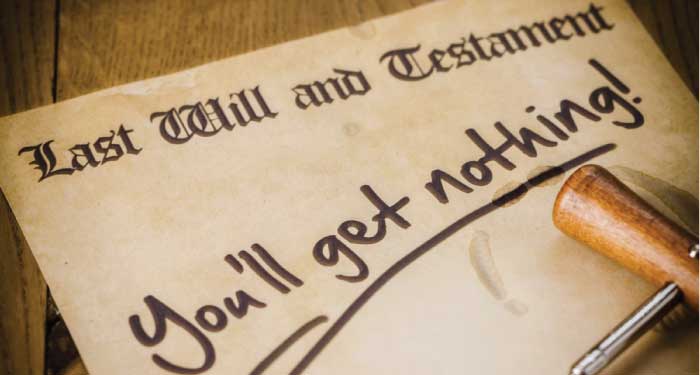
Common misconceptions of Will writing….
Whilst none of us wish to think about our own mortality, it is something that we all must do to protect our loved ones and assets after death. There is no denying that this is a complex area which is unfortunately further complicated by misinformation and bad advice. Below are the most common misconceptions that we come across when advising clients:
“I don’t need a Will because everything will pass to my spouse” – this may be the case, however, it is not always true. Where you die intestate (without a Will) and you are married with children, your spouse will inherit the first £250,000 plus personal possessions but the remainder of your estate will be split 50% to your spouse and 50% to your children. This may not be in line with your wishes and may cause unnecessary complications and tax issues as the gift to your children will not be exempt from inheritance tax. Writing a Will is the only way of ensuring that your assets pass as you intend.
“My girlfriend is basically my common-law-wife and will be treated as my spouse when I die” – a surviving partner who wasn’t married or in a civil partnership with the deceased has no automatic right to inherit under the intestacy rules regardless of how long they have been together. It is also subject to inheritance tax.
“Paying for a Will is a waste of money. I wrote my own” – a properly drafted Will (which often includes the provision of trusts) can be complicated and needs to be correctly drafted to ensure that it is not only valid but that your instructions are clearly and concisely laid out. Even the smallest drafting error can result in disputes between your beneficiaries and worse still your Will could be deemed to be invalid meaning that your assets do not pass as you intend. Instructing a professional Will Writer can give you peace of mind and may save your estate a great deal of money after your death.
“The kids’ godparents will bring them up if we die” – the only way to appoint guardians for your children is under your Will. If you do not leave a Will, the court will be required to appoint a guardian for your children which could mean your children have to contend with court battles, family disputes and potentially even foster care. Writing a Will allows you to appoint guardians, leave a letter of wishes outlining how you wish them to be raised and make financial provision to ensure they can be adequately cared for.
“I want to put my house into trust to avoid care fees” – one of the most common misconceptions that we come across is that people can avoid care home fees by simply putting their home in trust. Firstly, if the person transferring the house into trust (the settlor) continues to live in the house rent free then the planning would not be effective and may have considerable adverse tax consequences. Secondly, the settlor may be deemed to have deliberately deprived the local authority. It is possible to put in place care home planning for the surviving spouse, but professional advice should be sought on this.
“I transferred my house to my children so it not considered part of my estate for inheritance tax” – if a person transfers their house and continues to live in it this will be considered to be a gift with reservation of benefit and the house will still be part of their estate for inheritance tax, unless they pay full market rent.
“The government won’t get their hands on any of my money” – according to the Money Advice Service, £8 million of money and assets went to the government in 2015 because people died without making a Will, along with £4.6 billion of inheritance tax being collected in 2015/2016.
“I will just leave all my money to the cats’ home” – whilst you are entitled to leave your assets as you wish under your Will, the Inheritance (Provision for Family and Dependants) Act 1975 enables the court to vary the distribution of the deceased’s estate for certain family members and dependants where reasonable financial provision has not been made. It is important that any dependents are carefully considered to avoid unnecessary claims on your estate.
“I don’t need a Will, my family know my wishes” – this may be so, but your family will have no control over what happens with your estate and the law dictates who administers your estate, inherits your assets and cares for your children.
Do you have any outstanding questions on your Will? Contact us today for a free consultation.
